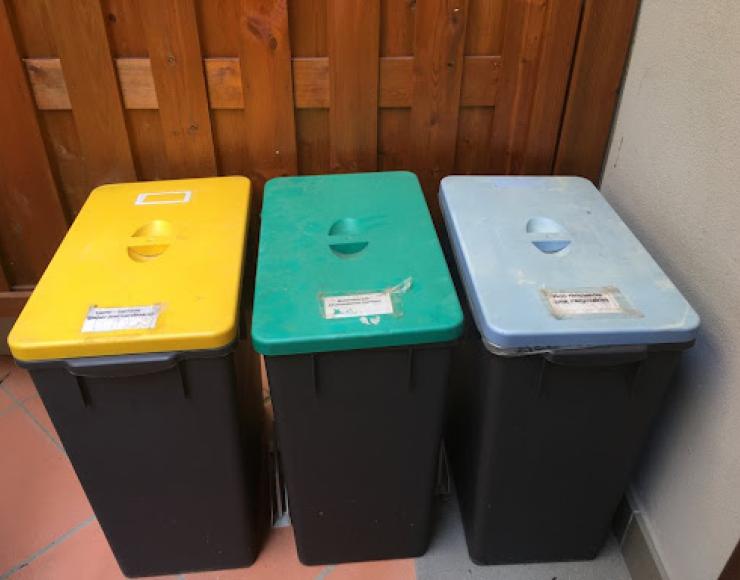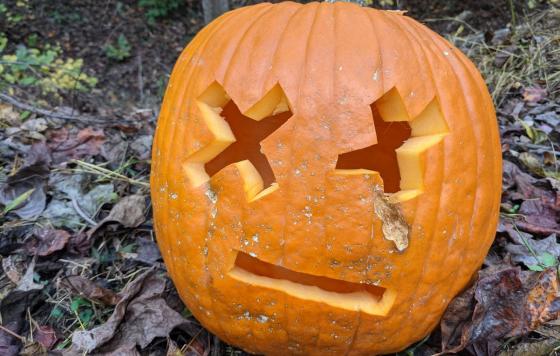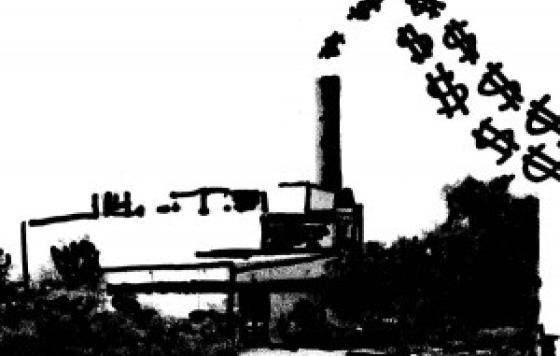
In the summer of 2021, I began working with Clean Water Action as an intern to help with some of their policy research projects, primarily concerning Maryland’s Renewable Energy Portfolio Standard, trash incineration, and waste disposal in general. As I delved deeper into our current waste management systems, I learned more about alternatives and better solutions to the systems that we have now, which reminded me of the feasibility and simplicity of sorting waste during my time studying abroad in Lucca, Italy.
Rewind three years to the summer of 2019, when I had the opportunity to travel to Lucca, Italy to study “Plants & Civilization” and “Global Sustainability” with a group of other students from my university. The moment our bus arrived in Lucca, each group of roommates were led by a local to what would be our new housing for the next four weeks. We were scattered throughout the little city in apartments or studios in groups of 2-6. My two roommates and I followed our guide up to a cute apartment on the outskirts of the city limits. She gave us a tour while explaining some logistical instructions like don’t run the dishwasher and washer machine at the same time to avoid a power outage. In a nook, where the washer machine was, there were four bins with different colored lids. We were told that each bin was for a different type of waste: paper, mixed materials, non-recyclables, and organics (which was usually kept in the kitchen). Above the bins was a sign explaining the trash pickup schedule and what could be disposed of in each bin. In a cabinet nearby were different colored bags that corresponded with the different bins, which made it easy to follow.
Considering I was taking “Global Sustainability” as one of my courses in Lucca and my general interest in sustainable waste management, I was very pleased. As the days progressed, we became very used to this new way of sorting our waste and putting out a different bag each day or so for pick up. I heard no complaints from the other students about the difficulty of this new system or of confusion towards waste pick up times. Everyone seemed to adjust quickly to this new normal.
Arlington, Virginia manages their organics similarly. I took a trip to see my sister one weekend who lives in Arlington, VA, which is about 2 hours from where I live in North East, Maryland. I noticed a small pail in her kitchen, which she explained was given to every resident to collect food scraps, and can be placed in their “green organics’ barrel for curbside pickup. This has all been successfully done since September 2021. I was again pleasantly surprised.
Our waste crisis is a huge undertaking to try to solve, but these small changes to our everyday life is a step in the right direction. When integrated slowly and in small stages, people will adjust accordingly. Counties and cities all throughout Maryland have been launching composting pilot programs for curbside, drop-off, and other various services since 2011! Most pilot programs started small with a couple neighborhoods like what Montgomery County or Howard County did and would also offer kitchen composting bins, bags and a separate food scraps bin for the curbside.
During my time at Clean Water Action, we compiled a Maryland Composting Programs Reference to better understand what local governments are already doing to move toward Zero Waste, and which ones could be doing more. Some highlights:
-
3 counties and 10 cities off food scrap pick up for some or all of their residents
-
1 county and 6 cities have sites where people can drop off food scraps
-
4 counties and 3 cities encourage backyard composting by offering information and even discounted bins to their residents for food scraps
-
2 counties (Howard and Prince George’s) have developed their own food scrap composting facilities, in addition to privately operated compost businesses like Compost Crew and Key City Compost. Advocates in other places, like Baltimore City and Montgomery County, have made constructing more facilities like these one of their key demands to move toward zero waste.
These Maryland counties and cities set a great example of what the future of organic waste can be by demonstrating that food scrap curbside pick up is a doable and manageable system. Of course offering curbside organics collection wouldn’t be the right fit for every county, especially considering our rural counties are very spread out, but most of these rural counties do provide a lot of great resources and details about how people can compost at home.
One huge takeaway I learned from working with Clean Water Action was that so much significant change happens at the local level. I thought that the key to change was passing big national policies, but in actuality it is the programs and pilots like what a lot of Maryland counties and cities have accomplished with their food scrap pick up pilots. The pilots started off small with a couple neighborhoods or a set amount of volunteers and the program would assess what needed to change and how feasible it would be for their area, and grow from there.
None of these changes would happen without people like you getting involved in your local government, talking with your elected officials, learning about your county and city policies, and finding ways to bring these successes to your town. A great way to do this is to reach out to organizations and groups that are already doing amazing things, like Clean Water Action who can help guide you and bring these ideals to reality.
~
Quick links: Maryland Composting Programs Reference and Summary.


